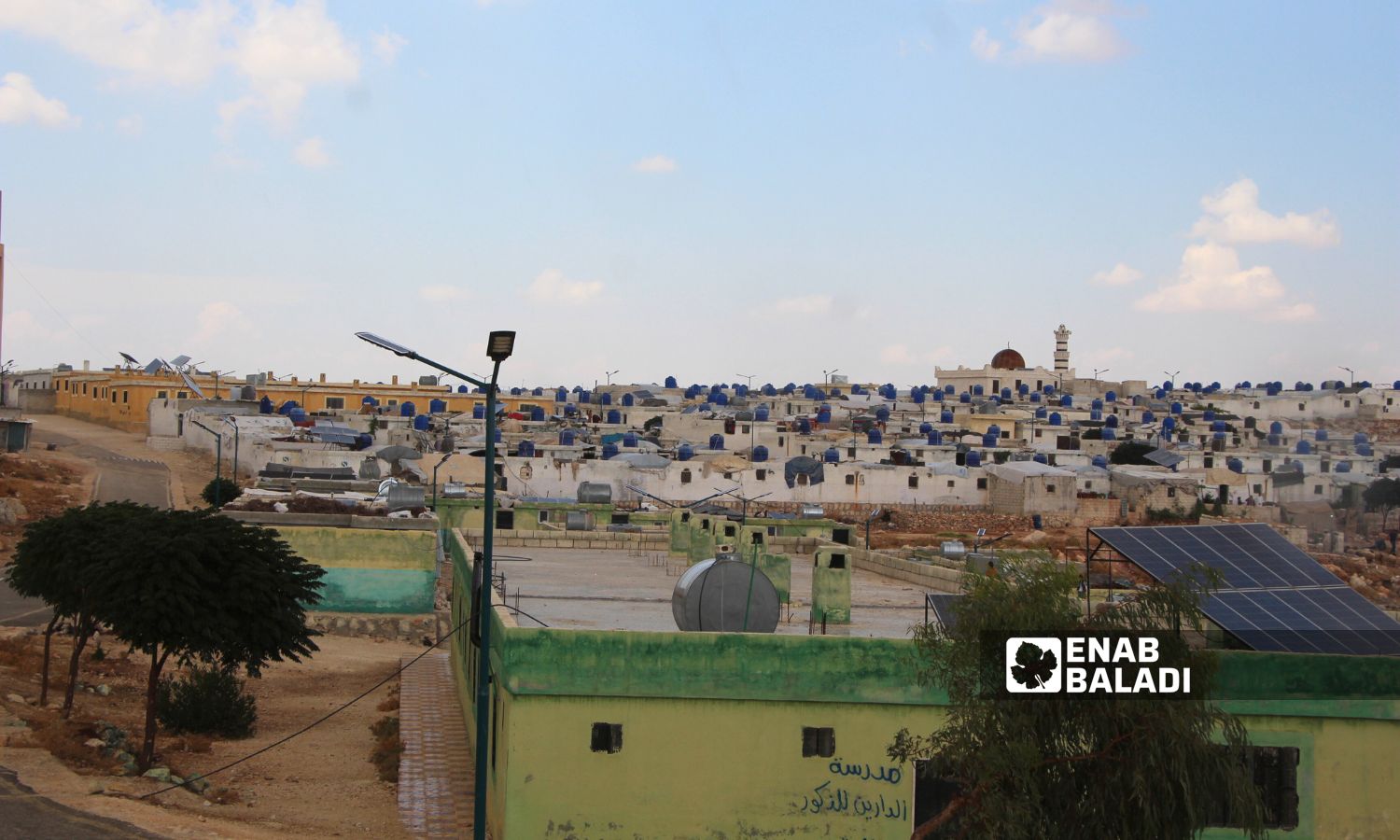



Mrs. Alia Ahmad (49 years old), residing in the al-Kuwaiti camp in northern Idlib, was surprised to find her name removed from the list of beneficiaries of aid provided by the Nasaem Khair organization. She is among the most needy for the aid, according to her, describing her situation as “below zero.”
Mrs. Ahmad told Enab Baladi that her family of six is living in dire conditions. They were displaced from the countryside of Aleppo to the al-Kuwaiti camp in Harbanoush. Her husband is blind, and she has a son and daughter who have suffered burns resulting in deformities all over their bodies.
Mrs. Ahmad mentioned that a team from the Nasaem Khair organization came to her in July and conducted a survey for her family, and they met the required support criteria. However, her name was not on the list of beneficiaries when it was released.
She contacted the organization’s complaint number but received no response. Expressing her dismay, she questioned, “If my family doesn’t deserve support, who does?”
The situation of Mrs. Ahmad’s family is similar to dozens of displaced persons residing in the al-Kuwaiti camp, who criticized the mechanism and criteria for selecting beneficiaries and the organization’s exclusion of their names from the support list.
Displaced persons interviewed by Enab Baladi criticized what they described as the organization’s failure to apply support criteria and complained about their deteriorating conditions amid the lack of job opportunities and the decline in daily workers’ wages, which do not exceed three US dollars at best.
Mrs. Mariam al-Ghabi (37 years old), displaced from Sahl al-Ghab to the al-Kuwaiti camp, expressed her sadness and regret at having her family’s name (consisting of eight members) excluded from support. She mentioned that she needs the aid.
She told Enab Baladi that the organization conducted a survey for her family, and they met the support criteria considering her young child (one year and four months old) has a hole in his heart, valve stenosis, and asthma, and he needs a kilogram of blood every month in hospitals.
She added that her husband suffers from heart problems and disc disease and has undergone two heart surgeries. The family’s financial situation is “very miserable.” She noted that she contacted the organization’s complaint number but received no response.
Enab Baladi met with several residents of the al-Kuwaiti camp, who called on the organization to reconsider their situation and apply the support criteria, considering themselves among the most needy displaced persons for such aid.
The director of the al-Kuwaiti camp, Hael al-Rahmon, told Enab Baladi that the number of families residing in the camp is 470 families (about 3500 people), most of whom are from the southern countryside of Idlib and the countryside of Hama.
He added that the conditions in the camp are “poor,” suffering from a lack of support, poor housing preparations, and needing restoration and waterproofing every winter. The sewage system also requires maintenance and the drying of waste pits.
He mentioned that the camp needs a cleanliness project and a “sponsorship” for a water well, which is ready for service but needs a maintenance sponsor. Additionally, the bakery requires a “sponsorship” to provide fuel and labor wages.
Nasaem Khair is one of dozens of organizations operating in the northwestern region of Syria. It was established in late 2012 and registered in Turkey in 2015.
According to its profile, the organization provides humanitarian aid in multiple fields, including early recovery, food security and livelihoods, non-food items, and shelter, among others.
Enab Baladi contacted the media office of the organization to obtain clarifications on the mechanism for selecting beneficiaries and responding to the residents’ criticisms and complaints. However, they refused to comment.
The media office stated that those with complaints could relay them through the organization’s phone number.
Northern Syria is home to 5.1 million people, of which 4.2 million need assistance, 3.4 million suffer from food insecurity, 3.4 million are internally displaced, and 2 million live in camps, according to the United Nations. Local statistics indicate 5.5 to 6 million people.
if you think the article contain wrong information or you have additional details Send Correction